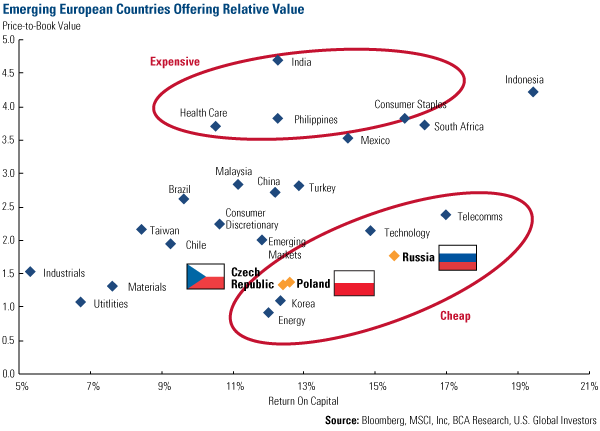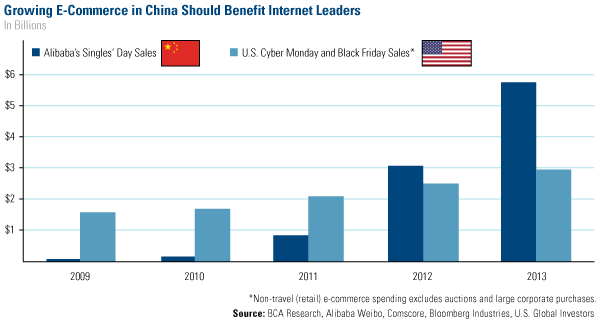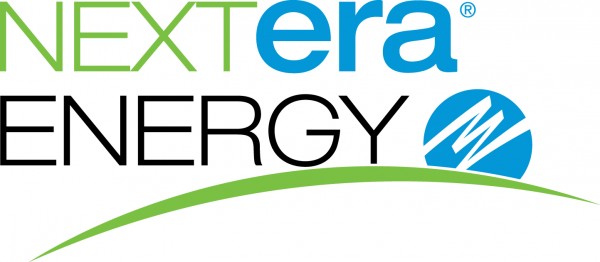Emerging Markets Radar (December 23, 2013)
Strengths
- A slew of good macroeconomic data came out of the European Union this week. Markit’s Flash Eurozone Composite PMI rose more than expected to 52.1, hitting its second highest level in 31 months. Similarly, German investor confidence hit a seven-year high. The survey climbed to its highest level since April 2006, surging to 62 from 54.6 in November and topping consensus of 55. The current situation number also increased, as did sentiment for the eurozone.
- Hungary’s economic sentiment index jumped to the highest level in more than 11 years as businesses and consumers became less pessimistic about their prospects. The index rose to the highest level since October 2002, according to the GKI research institute in Budapest. The news follows a string of positive macroeconomic numbers coming from the Eastern European nation, as Prime Minister Viktor Orban, who leads in all opinion polls ahead of elections next year, is working to accelerate growth as the economy emerges from its second recession in four years.
- The People’s Bank of China (PBOC) pumped RMB200 billion into selected banks Thursday after the Shanghai Interbank Offered Rate (Shibor) spiked the most since a record cash crunch in June, which confirmed that PBOC will help if needed.
- China will promote a mixed ownership economy by diversifying the shareholding structure of state-owned enterprises (SOEs), China Daily says. If this report is true, the government will be able to monetize state-owned assets to pay debts.
- China is to accept applications for over-the-counter (OTC) trading by the end of this year, China Securities Journal reports. The China Securities Regulatory Commission also issued guidelines for IPO, preferred shares, and OTC market expansion, all of which will benefit brokerage business.
- Malaysia November CPI ticked up to 2.9 percent, in line with market consensus, and eased 0.3 percent month-over-month.
Weaknesses
- Outflows from emerging market equity funds accelerated this week. According to HSBC, outflows jumped to the highest level in 16 weeks. Barring Asia ex-Japan funds that saw negligible inflows, all other emerging market regional equity funds faced redemptions. By country dedicated funds, South Korean funds received substantial inflows, while Taiwanese, Brazilian and Mexican funds saw considerable outflows.
- Greek stocks have remained under strong pressure on the Athens Stock Exchange since last Friday, when news releases said the government tabled an amendment for the taxation of stock market profits. As a result, investors have been shedding stocks to realize gains ahead of the expected introduction date.
- With interest rate liberalization in China, financial market rates will continue to rise in 2014, which will reflect in a rising 7-day repurchase rate from 4.2 percent now to 4.5 percent, driving up Shibor and short-term rate fluctuations. Demand deposits will be priced at yields on 1-month or 3-month wealth management products, meaning substantial increases in commercial banks' overall funding costs. Government bond rates will likely rise again, with the target interest rate on 10-year bonds between 4.8 percent and 5 percent, followed by wider credit spreads that drive up credit bond yields. The medium- to long-term composite loan interest rate, which is closely related to company earnings and manufacturers' profitability, would likely increase from 7.7 percent to 8 percent.
- HSBC December China flash PMI was 50.5, lower than the market consensus of 50.9, showing the economy is expanding at a slower speed than the market had expected in December. In a separate report, China power demand growth slowed from 9.5 percent in October to 8.5 percent in November, confirming the growth momentum of the economy is easing.
- The Shanghai stock market SHCOMP Index was down for nine consecutive days since Tuesday last week. Also, fifty companies may complete IPO procedures in China in January, China Securities Journal reported, which would be negative to market liquidity.
- The Indonesia Rupiah had touched a post-global financial crisis low of IDR12,650.00, and should continue to be volatile after the U.S. Fed starts tapering.
- Thailand’s political problems relapse and the country is experiencing rising uncertainty.
Opportunities
- BCA Research acknowledged in its Daily Insights that the 2013 recovery in European valuations from deeply oversold levels has left less low-hanging fruit for 2014. However, BCA insists it is time to pick individual stock markets that offer an attractive structural valuation to risk trade-off, such as Austria. Even though European cyclically-adjusted price earnings multiples versus the world index have vanished, the valuation discount of select markets relative to the periphery is more compelling.
- Bank of America Merrill Lynch suggests owning Russia makes sense in a post-tapering world. According to the Bank’s analysts, in a world where the great constraint to emerging markets has been tapering fears, we're finally on the cusp of delivering some clarity to the great uncertainty that has held emerging markets back from the great rotation. In their view, Russia is tapering-insensitive and offers excellent risk reward for an eventual return to favor of emerging markets. Most recently, Russia has responded to periods of global emerging market revival more than oil price trends, yet bearish structural sentiment is reflected in low positioning and valuations that argue for positioning for an eventual emerging market revival via discounted Russia today.
- As shown in the chart below, online commerce in China is rising exponentially. Single day e-commerce sales were much higher than Black Friday e-commerce sales in the U.S. The e-commerce sector in China is in the mid-cycle boom, which should continue to drive the revenue and earnings of companies that are engaged in monetizing internet traffic.
Threats
- BofA Merrill Lynch’s double upgrade of Turkish stocks from underweight to overweight earlier in the week fell on deaf ears as the Turkish lira tumbled to a record against the dollar as Prime Minister Recep Tayyip Erdogan’s government purged police leadership in a fight back against a probe into official corruption. The government dismissed 14 department chiefs at the national police today, in addition to some 50 yesterday, according to a Bloomberg HT report. The dismissals came after police detained dozens, including the head of a state bank and the sons of three cabinet ministers, in an inquiry into graft. The Turkish currency has dropped 15 percent against the dollar this year, with the central bank attempting to control the related pass-through effect to inflation which already missed the 5 percent target this year.
- China’s financial system is reliant on liquidity injection by the PBOC. When the PBOC stopped reverse repurchase operations recently, the seven-day Shibor jumped to a six–month high of 8.5 percent by Thursday, a very expensive interbank lending rate both in absolute and relative term. The rate came down to 7.6 percent on Friday after the PBOC resumed liquidity injection. There is consensus in the market that although interest rate liberalization will make it efficient for capital allocation and the tightening bias will help deleverage the economy, it will push rising interest rates and the cost of capital in 2014.


















